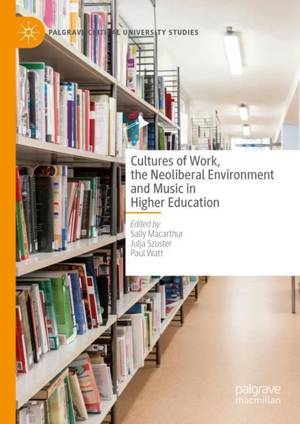
- Retrait gratuit dans votre magasin Club
- 7.000.000 titres dans notre catalogue
- Payer en toute sécurité
- Toujours un magasin près de chez vous
- Retrait gratuit dans votre magasin Club
- 7.000.0000 titres dans notre catalogue
- Payer en toute sécurité
- Toujours un magasin près de chez vous
Cultures of Work, the Neoliberal Environment and Music in Higher Education
Description
This edited book considers the impact of neoliberalism on music teaching, research and scholarship in a higher education context. As a subject that bears little resemblance to other university practical disciplines, and fares poorly in a model driven by economics, the book considers whether musicology is a 'public good' or a threatened species. It contemplates what musicology can usefully contribute to a paradigm driven by economics, and questions whether it is ever possible to recover an ideal civil subject in neoliberal music academia. Contributions investigate what it means to build music research capacity in innovative ways, such as forging cross-cultural relationships, subverting conventional notions of quality and value, replacing them with knowledges and values that guide Indigenous intellectual traditions, and whether interventions into the legacy of colonialism are truly ever possible in neoliberal higher education institutions that celebrate difference and diversitywhile reinforcing social inequities. The book also explores the relationships between gender and music, music research training and scholarship, and whether the interdisciplinarity championed by the university is ever workable. Finally, it undertakes a cross-disciplinary, new materialist reading of a canonical musical work, offering a radically new perspective. The book will appeal to students and scholars of music education, musicology, higher education studies and the creative arts more broadly.
Spécifications
Parties prenantes
- Editeur:
Contenu
- Nombre de pages :
- 275
- Langue:
- Anglais
- Collection :
Caractéristiques
- EAN:
- 9783031503870
- Date de parution :
- 30-03-24
- Format:
- Livre relié
- Format numérique:
- Genaaid
- Dimensions :
- 148 mm x 210 mm
- Poids :
- 498 g

Les avis
Nous publions uniquement les avis qui respectent les conditions requises. Consultez nos conditions pour les avis.





